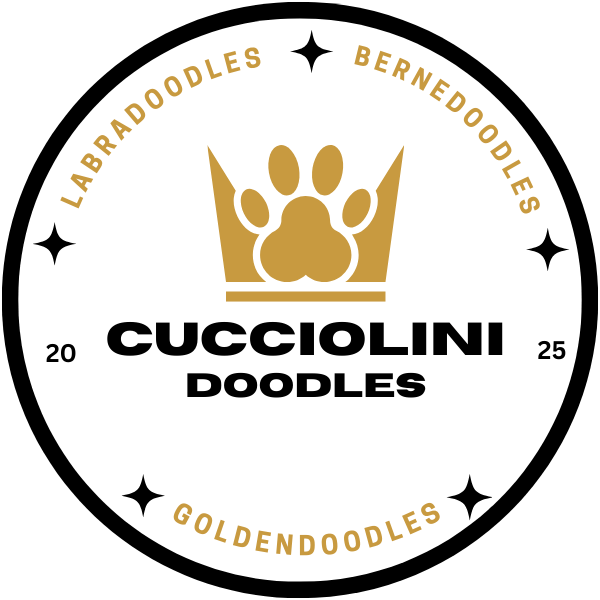Dietary requirements are essential for maintaining the overall health of dogs, particularly in improving their kidney function. By carefully selecting and providing the right nutrients through specialized recipes, we can significantly enhance the quality of life for our furry friends. Let’s explore three wholesome and vet-approved recipes tailored to support and promote optimal kidney function in dogs specifically.
Kidney Disease Health is a serious health issue that can affect these beloved dogs. When the kidneys fail, waste products build up, and fluid balance is disrupted. Generally, healthy dogs can be prone to certain genetic conditions, including kidney disease.
Regarding Dog Kidney Disease, it is crucial to understand the dietary requirements that can help manage the condition. A carefully planned and balanced diet supports kidney function and minimizes symptoms. Here are some nutritional considerations for Labradoodles with kidney disease:
3 Recipes to Help Improve Dog Kidney Health Containing Low Protein
Dogs with kidney disease often require a diet low in protein. The kidneys play a crucial role in processing and eliminating protein waste products. Incorporating our 3 Recipes to Help Improve Dog Kidney Health in Reducing protein intake can ease their workload. However, it’s important to consult a veterinarian to determine the appropriate level of protein restriction for your Dog.
Controlled Phosphorus:
High phosphorus levels can harm dogs with kidney disease, as their kidneys struggle to filter it out effectively. Therefore, a diet low in phosphorus is recommended. Specialized renal diets formulated for dogs with kidney issues are typically designed to have reduced phosphorus content.
Adequate Fluid Intake
Maintaining proper hydration is crucial for Dogs with kidney disease. Encouraging your furry friend to drink more water can have a positive impact on their kidney function and reduce the level of toxins in their body. Adding moisture-rich foods or broths to your dog’s diet may also be beneficial.
Balanced Nutrients
While certain nutrients must be limited or controlled, it’s important to ensure that your Dog still receives a balanced diet with all the necessary vitamins and minerals. Introduce our 3 Recipes to Help Improve Dog Kidney Health Collaborating with a veterinarian or veterinary nutritionist can help create a personalized meal plan for your dog.
It’s important to remember that each Dog is unique, so it’s crucial to consult your veterinarian for a proper diagnosis and personalized dietary recommendations. They can guide the best approach to managing your dogs kidney disease and ensure overall health and well-being.
The Importance of 3 Recipes to Help Improve Dog Kidney Health
A specialized diet plays a crucial role in managing kidney disease in Dogs. Feeding your furry friend a kidney-friendly diet can improve their health.
There are several factors to consider when choosing the right food for Dogs with kidney disease. Making dog food at home can be a wonderful choice, giving you complete control over the ingredients and proportions. However, it’s important to consult with a veterinarian or veterinary nutritionist to ensure that a homemade diet meets all necessary nutritional requirements for your furry friend.
Diet Low in Proteins
Dog renal diets generally focus on reducing the workload on the kidneys by limiting certain nutrients such as protein, phosphorus, and sodium. A low-protein diet is often recommended for dogs with kidney disease to minimize the accumulation of waste products in the blood. It is important to note that not all proteins are created equal, so it is advisable to opt for high-quality, easily digestible protein sources.
Phosphorus is another nutrient that needs to be restricted in a kidney-friendly diet as our 3 Recipes to Help Improve Dog Kidney Health. Excess phosphorus can further strain the kidneys, so choosing foods low in phosphorus content is essential. Reducing sodium intake can also help manage blood pressure and fluid retention, which are common issues associated with kidney disease.
Low Protein Recipes
There are numerous low-protein recipes available specifically designed for Dogs with kidney disease. Our 3 Recipes to Help Improve Dog Kidney Health often include lean meats like chicken or turkey, rice or pasta as a carbohydrate source, and various vegetables. Adding supplements like omega-3 fatty acids can also benefit kidney health.
Remember, every Dog is unique, and its dietary needs may vary based on its specific condition and stage of kidney disease. Regularly monitoring your dog’s condition through check-ups with your veterinarian is essential to ensure its diet remains appropriate and effective.
By following a specialized diet tailored to Dogs with kidney disease, you can provide your furry friend the best possible chance of managing their condition and enjoying a happy, healthy life.
Nutritious Recipes for Dogs with Kidney Disease
Are you looking for a low-protein dog food recipe suitable for dogs with kidney disease? I have just the recipe for you! This chicken and sweet potato stew is delicious and is tailored to meet the dietary needs of dogs with kidney issues.
Here’s what you’ll need to Create this Delicious Meal for your Dog:
– 2 boneless, skinless chicken breasts
– 2 sweet potatoes, peeled and chopped
– 1-1/4 cup low sodium chicken broth
– 1 cup water
– 1-1/2 cup green beans, chopped
– 1 tablespoon olive oil
Instructions:
1. To begin, heat the olive oil on medium heat.
2. Add the chicken breasts and cook until they are no longer pink in the center. Remove them from the pot and set aside.
3. Add the sweet potatoes, chicken broth, and water in the same pot. To bring the mixture to a boiling point, heat it until it starts bubbling, then lower the heat to simmer.
4. Cook the sweet potatoes until they are tender, about 15 minutes.
5. Meanwhile, shred the cooked chicken breasts into small pieces.
6. Add the shredded chicken and green beans to the pot for 5 minutes after the potatoes are cooked.
7. Remove from heat and allow the stew to cool before serving.
This low-protein chicken and sweet potato stew provides a balanced meal for dogs with kidney disease. The chicken provides lean protein, while the sweet potatoes offer a healthy source of carbohydrates. The green beans add some additional nutrients and fibre.
Before changing your dog’s diet, consult your veterinarian.
Recipe 2: Fish and Brown Rice Medley for Renal Support.
Introducing a kidney-friendly recipe that combines the goodness of fish and brown rice to provide optimal renal support for your furry friend is vital. This delectable medley satisfies their taste buds and meets their nutritional needs, particularly in terms of low phosphorus content.
Ingredients:
– 1 cup cooked brown rice
– 1/2 cup boneless, skinless white fish (such as cod or sole)
– 1/4 cup peas (fresh or frozen)
– 1/4 cup carrots, diced
– 1 tablespoon olive oil
Instructions:
1. Cook the brown rice following the instructions on the package, then set it aside.
2. Heat oil on medium heat.
3. Add the diced carrots and peas to the pan and sauté for a few minutes until they become slightly tender.
4. Cut the white fish into small, bite-sized pieces and add them to the pan with the vegetables.
5. Cook the fish until it turns opaque and flakes easily with a fork. It usually takes around 5–7 minutes.
6. Once the fish is cooked, add the brown rice to the pan and mix well until all ingredients are evenly combined.
7. Allow the mixture to cool before serving it to your beloved pet.
This kidney-friendly fish and brown rice medley provides a balanced meal that supports your dog’s renal health while being delicious. The low phosphorus content helps reduce kidney strain, making it an ideal option for dogs with renal issues.
It is important to consult your veterinarian before changing your pet’s diet, particularly if the pet has specific dietary needs or health conditions.
Recipe 3: Vegetable and Quinoa Delight for Dogs with Kidney Issues
Introducing our Vegetable and Quinoa Delight, specially formulated for Dogs with kidney issues. This recipe is delicious and follows a renal diet, ensuring your furry friend receives the nutrients they need while caring for their kidney health.
Here’s what you’ll need for this wholesome meal:
Ingredients:
– 1 1/4 cup cooked quinoa
– 1 cup mixed vegetables (carrots, peas, and green beans), chopped.
– 1/2 cup low-sodium vegetable broth
– 1 tablespoon olive oil
Instructions:
1. Start by following package instructions to cook quinoa. Then, set it aside to cool.
2. Heat olive oil over medium heat.
3. Add the chopped vegetables to the pan and sauté them until tender.
4. Once the vegetables are cooked, add the cooked quinoa and vegetable broth to the pan. Stir everything together thoroughly.
5. Allow the mixture to simmer for about 5 minutes or until it reaches a desired consistency.
6. Remove the pan from heat and cool completely before serving.
Remember, it’s always a good idea to consult your veterinarian before making any dietary changes for your Dog with kidney issues. They can provide you with specific guidance tailored to your dog’s needs.
By preparing this Vegetable and Quinoa Delight, you can provide your beloved Dog with a nourishing meal that supports their renal health. Enjoy watching them relish this tasty and nutritious dish!
Tips for Feeding our 3 Recipes to Help Dog Kidney Disease
Feeding a Labradoodle with kidney disease requires special attention to ensure their dietary needs are met while managing hydration levels. Here are some tips to assist you:
Personalized Feeding Plan
Developing a personalized feeding plan with your veterinarian for your Labradoodle’s specific needs is crucial.
Quality Protein Sources
If your dog requires protein, choose high-quality sources like lean meats (chicken, turkey) or eggs. These proteins are easier to digest and put less strain on the kidneys than lower-quality protein sources.
Controlled Phosphorus Intake
Excessive phosphorus can worsen kidney disease symptoms. Choose dog foods with reduced phosphorus levels, or consider adding a phosphorus binder prescribed by your veterinarian to regulate phosphorus absorption.
Adequate Hydration
Kidney disease may lead to dehydration, so it’s important to encourage proper hydration. Ensure fresh water is always available, and consider moistening your Dog’s food with water or low-sodium broth to increase fluid intake.
Controlled Sodium Levels
Excess sodium can contribute to fluid retention, which is detrimental for dogs with kidney disease. Opt for low-sodium dog foods and avoid adding additional salt to their meals.
Small, Frequent Meals
Feeding smaller, more frequent meals can be easier on the kidneys, as it reduces the workload during digestion. Dividing your Dog’s daily food portion into several smaller daily meals may be beneficial.
Monitor Weight
Regularly monitor your Dog’s weight, as excessive weight loss and weight gain can negatively impact their overall health and kidney function. Adjust their food portions accordingly in consultation with your vet.
Before making significant dietary changes, it’s crucial to consult your veterinarian since every Dog’s condition is unique. Personalized advice from a veterinarian ensures that your pet receives the best care.
Consulting Your Veterinarian and Regular Monitoring
When it comes to Dogs with kidney disease, consulting your veterinarian is essential. They are the experts who can provide specific guidance tailored to your dog’s condition.
Your veterinarian will likely recommend a comprehensive treatment plan, including dietary changes, medications, and lifestyle adjustments to manage your Dog’s kidney disease effectively. They suggest a specialized renal diet low in protein and phosphorus to reduce the kidney workload and help maintain your dog’s overall health.
In addition to following your veterinarian’s advice, regular check-ups are crucial for dogs with kidney issues. These check-ups allow your veterinarian to closely monitor your Dog’s condition, assess their response to treatment, and make any necessary adjustments to the treatment plan.
Check-ups
During these check-ups, your veterinarian will perform various tests, such as blood work and urinalysis, to evaluate kidney function and detect potential complications. They may also monitor blood pressure, as hypertension often accompanies kidney disease.
By scheduling regular check-ups, you can catch any changes or issues early on and ensure that your Dog receives timely intervention and support for kidney disease.
Monitoring
Remember, while your veterinarian is there to guide you through this journey, it is important for you as a pet parent to be proactive in monitoring your Dog’s well-being. Watch for changes in appetite, water intake, urination patterns, or overall behaviour and promptly communicate these observations with your veterinarian.
With proper veterinary guidance and regular monitoring, you can help manage your Dog’s kidney disease and improve their quality of life.
Conclusion: Nurturing Your Dog’s Health with a Kidney Disease-Friendly Diet
In conclusion, providing a kidney disease-friendly diet is crucial for nurturing your Dog’s health. By carefully selecting and preparing meals low in phosphorus and protein, you can help manage your dog’s condition and improve its quality of life. It is important to consult a veterinarian and create a tailored recipe that meets your Dog’s needs.
Remember to prioritize hydration by ensuring fresh water is always readily available. Additionally, monitoring your dog’s weight, regularly exercising within limitations, and administering prescribed medications or supplements will contribute to their overall well-being.
By taking proactive steps to address kidney disease through proper nutrition and veterinary care, you can greatly enhance the health and longevity of your beloved Dog. Your furry companion deserves the best possible respect, and with a kidney disease-friendly diet, you can provide just that.
















Add comment